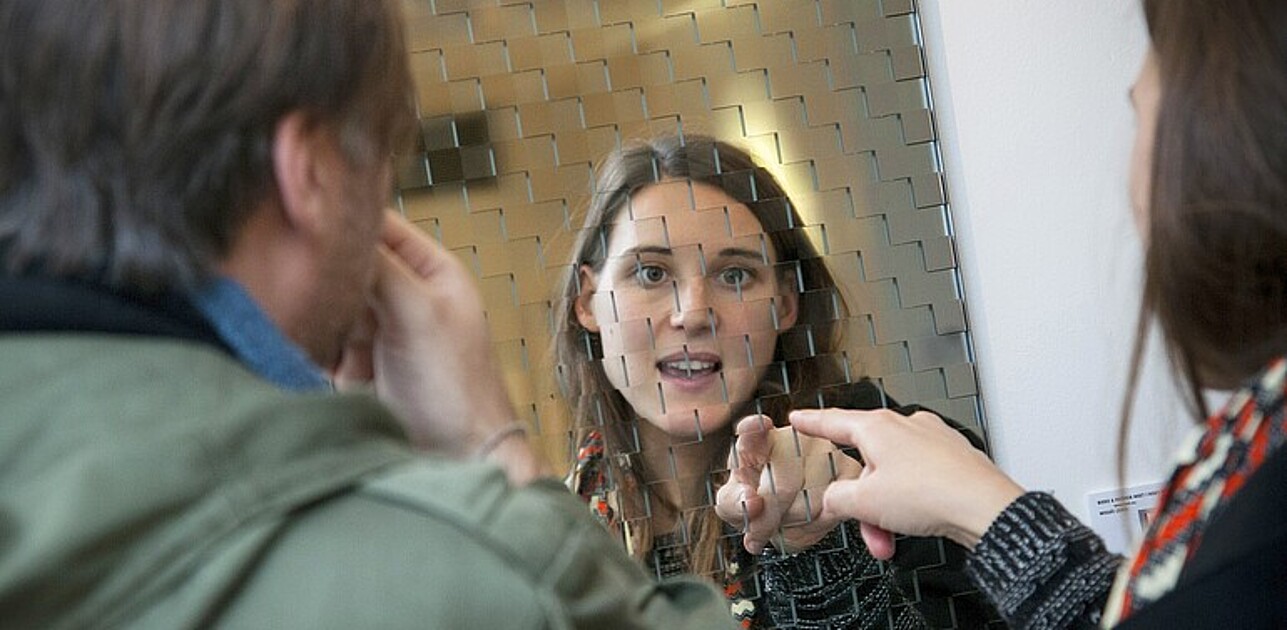

Article: Thursday, 15 September 2016
Companies that develop a second nature of constantly reviewing their own objectives, strategy and work processes, strike a better balance between finding new business opportunities and maximising profits from current activities. In his PhD research, Pepijn van Neerijnen of Rotterdam School of Management, Erasmus University (RSM) discovered that this positive effect of a reflexive climate is much stronger in small companies than in big companies. This makes it a valuable instrument for small companies that want to become more innovative. Van Neerijnen defended his thesis on 12 September 2016.
Often the first instinct of every firm is to eke out the highest return-on-investment from current activities and improve the efficiency of existing business. But myopically focusing on this can make them lose sight of new business opportunities that need to be identified and developed to survive and thrive in the long run. That’s why companies need to find that precarious balance between the two activities and devote a part of their energy to exploring new possibilities, next to their business-as-usual, Van Neerijnen says.
Reaching this desired state of so-called ‘ambidexterity’is a challenge for every company, regardless of its size. But compared to larger companies that can afford to run large R&D departments parallel to their daily business, small companies often cannot free up the time and energy it takes to become ambidextrous. The results of Van Neerijnen’s study now show that becoming more reflexive can help small companies overcome this disadvantage they face in becoming more ambidextrous. He discovered the link between reflexivity and ambidexterity by surveying 192 people working at 101 organisations – small and big – from six industries.
Van Neerijnen says that small firms are at an advantage to become more reflexive compared to their larger counterparts, because reflexivity is all about developing a self-critical and constructive mindset. And it is easier to change attitudes and corporate culture in a small company with fewer departments and more integrated informal networks, he says. This makes reflexivity a valuable and cost-effective tool for small companies that want to become more ambidextrous and innovative.
There are several ways a company can learn to become more reflexive, van Neerijnen says. First of all, before becoming reflexive, managers and employees need insights about what’s going on within the company. Task rotation and proper knowledge management systems such as dedicated discussion boards can help people with gathering and sharing company knowledge. Organising ‘lessons learned sessions’ after big projects is another way of stimulating knowledge exchange, says Van Neerijnen, just like the creation of teams that consist of people from different functional teams.
Some people in the organisation may be unaccustomed to the techniques necessary for expressing themselves critically and constructive, or they might have trouble with assuming the role of the devil’s advocate. That’s when formal training can be organised, so people can grow into the role of being reflective about the company. For managers, the big challenge is to create a safe environment where people can express themselves. When that is achieved, company reflexivity can stimulate not only discussions about strategy and practices; the underlying values of the companies can also become subject of scrutiny. And that in turn can create a fertile breeding ground for radical – potentially valuable – innovations that go far beyond the business-as-usual, Van Neerijnen concludes.

van Neerijnen, P. (2016, September 12). The Adaptive Organization : the socio-cognitive antecedents of ambidexterity and individual exploration (No. EPS-2016-ERIM 358- S&E). ERIM Ph.D. Series Research in Management. Erasmus University Rotterdam.


Science Communication and Media Officer
Rotterdam School of Management, Erasmus University (RSM) is one of Europe’s top-ranked business schools. RSM provides ground-breaking research and education furthering excellence in all aspects of management and is based in the international port city of Rotterdam – a vital nexus of business, logistics and trade. RSM’s primary focus is on developing business leaders with international careers who can become a force for positive change by carrying their innovative mindset into a sustainable future. Our first-class range of bachelor, master, MBA, PhD and executive programmes encourage them to become to become critical, creative, caring and collaborative thinkers and doers.
